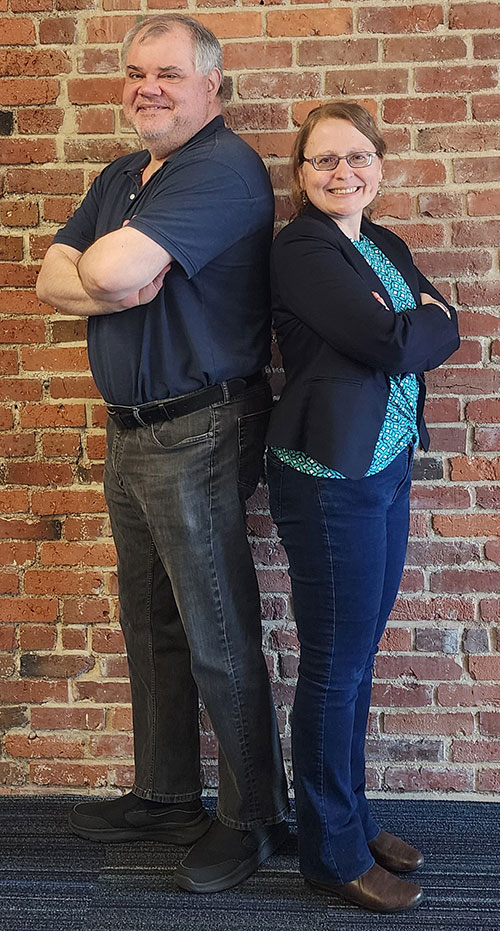UW Tacoma Among 35 National NSF Awards for AI Research
This Section's arrow_downward Theme Info Is:
- Background Image: ""
- Theme: "light-theme"
- Header Style: "purple_dominant"
- Card Height Setting: "consistent_row_height"
- Section Parallax: "0"
- Section Parallax Height: ""

The National Science Foundation announced its National Artificial Intelligence Resource (NAIRR) Pilot Awards last spring and UW Tacoma was one of 35 awardees nationwide to be granted first round access to computational resources and data to promote artificial intelligence (AI) research. Dr. Martine De Cock and Dr. Paulo Barreto of UW Tacoma’s School of Engineering and Technology were given one of the awards to continue their work in privacy-preserving AI.
"We were pleased to see a competitive submission from, and NAIRR pilot resource award to, the researchers at the University of Washington Tacoma led by Martine De Cock,” said Katie Antypas, director of NSF’s Office of Advanced Cyberinfrastructure. “It is critically important that researchers from across the country and every region—including from urban institutions such as the University of Washington Tacoma that serve a large community of students who are the first in their families to go to college—have an opportunity to contribute to AI's rapid development."
Students from UW Tacoma’s graduate and undergraduate programs in computer science are working with De Cock and Barreto on their research and gaining access to the foremost computer and machine learning technology in the world.
“We’re working on something called synthetic data generation,” said De Cock. “AI systems need a lot of data and very often the data that these systems work on is personal data of patients, or credit card transactions, purchases, etc. My research interest is how we do AI that relies on personal data without violating people’s privacy.” In cooperation with Sage BioNetworks in Seattle, the UW Tacoma team applies privacy-enhancing technology to create AI solutions for rare diseases without disclosing sensitive patient data.
“We have to do all of this without revealing any information from any of the parties involved,” said Barreto. “In the kind of cryptography we’re talking about, it requires a lot of computational resources to do so and it’s very slow. If we’re looking at medical data or crime statistics data, if there is any relative of this person in that database, there are rules that you cannot reveal that information. We process the encrypted data and get an encrypted result maintaining confidentiality in all cases,” he said.
De Cock’s and Barreto’s research has been going on for about 10 years now, and the ability to access supercomputers owned by the Federal government called the Texas Advanced Computing Center (TACC) Frontera at the University of Texas at Austin, will allow them to continue their research using AI systems.
“For instance, when you think about data for rare diseases, there is some data in a hospital in Seattle, there is some data in Boston, or somewhere else, and if you could bring those pieces of data together, you could train an AI system that’s much better than what a hospital can do locally on its own.” De Cock said hospitals are often prevented from sharing that data with one another due to privacy concerns and regulations.
“What we are working on is how to take the original data and create synthetic data that has similar characteristics as the original, but without containing personal information,” De Cock said. “We train generative AI models over the original data while keeping that data encrypted. Those computations are very intensive,” said De Cock. “That’s the reason why we use a supercomputer.”
The NAIRR Pilot awards are a result of President Biden’s executive order on the safe, secure and trustworthy use of AI. The order directed federal agencies to provide researcher and student access to some of the nation’s best AI technology.
Recent news
Main Content
Gathering Strength
News Tags on this arrow_upward Story:
- None
Main Content
UW Tacoma Enrollment up 4% for Autumn 2024
News Tags on this arrow_upward Story:
- None
Main Content
Celebrating First Gen
News Tags on this arrow_upward Story:
- None



